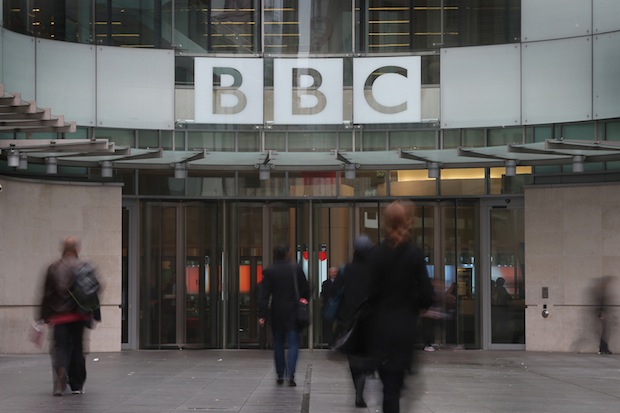Three years ago, our columnist and former editor Charles Moore was summoned to Hastings Magistrates’ Court to pay £807 for refusing to pay his television licence. He was protesting against the BBC’s ‘gross violation of its charter’ by broadcasting obscene phone calls made by Jonathan Ross and Russell Brand to the former Fawlty Towers actor Andrew Sachs. The court did not have much time to hear his case, or anyone else’s. That day, 560 others would have been prosecuted for not paying their dues to the BBC. Now it has risen to 700 a day, accounting for an extraordinary one in ten of English court cases.
We now know why the Beeb needs the money: it has paid some £60 million in severance payments to various senior managers in the last eight years. When seven BBC executives were asked to explain this to the House of Commons Public Accounts Committee this week, they exuded a sense of collective bewilderment that they should be brought to account. This is what happens if you can rely on the taxman to raise the money you spend. Michael Grade, former BBC chairman, put the problem succinctly. ‘Like the very wealthy son of a rich family,’ he said, ‘you don’t learn the value of money.’
The BBC’s problems do not stem from its recent payoffs: they are a symptom of a deeper malaise. It is a bureaucracy, designed for the 1930s, which has somehow made it to the 21st century. Listening to its executives waffle this week, it’s horribly clear that the BBC does not have leadership or even a hierarchy. It simply has a corporate culture in which success comes from keeping your head down. And its money is guaranteed, because people who don’t pay up are taken to court.
In the press, the hierarchy is a pyramid topped by the editor, with whom the buck stops. If a mistake is big enough the editor walks the plank — and rightly so. The BBC is structured in a very different way. Its hierarchy ends in a plateau, in which power is diffused across management teams. If all goes well, everybody takes the credit. If all goes wrong, you can never work out who was responsible and everybody blames somebody else. And if any heads do roll, the fall is cushioned by an eye-watering windfall collected from the people who fill magistrate’s courts across the country.
When justifying huge salaries, the BBC pretends that it is a business competing in a commercial market. But its funding system is justified on the basis that it is a public service devoted to Lord Reith’s mission to inform. This claim never been harder to sustain. It is now using its unfair funding advantage to try to compete with its rivals. Take, for example, its new online ‘magazine’ which this week has a feature about karate-kicking ‘teen exorcists’. Highly entertaining, no doubt, but is this really a public service that no one else would provide?
Then take BBC iPlayer, a highly popular innovation. But it comes free — or, rather, the costs are collected by the taxman and the magistrates. It’s far easier than asking people to stump up cash. Its website also provides daunting competition for local newspapers, many of which are going out of business. All told, the BBC is the most glaring example of anti-competitive practice in the British economy, yet one which none of the government’s competition quangos has ever seen fit to investigate.
Why does the BBC expand? Because this is what bureaucracies do. Like old imperial armies, they conquer because they feel the only alternative is defeat. The result is a sprawling portfolio of interests, which are very far removed from Lord Reith’s values.
A reckoning is long overdue. The BBC may not know the value of money, but those prosecuted for not paying its fines certainly do. Many of them struggle to make ends meet and would not dream of paying £145.50 for BBC services that they could happily go without. Sky now produces some of the best arts coverage in Britain. The market for drama is now global, and British living rooms are filled with American (and even Danish) DVD box sets.
The BBC can easily compete in such a market, its programmes have a global appeal. It could easily find people willing to pay to watch or listen. But if it wants to be tax-funded, it should restrict itself to a public service remit and focus on reducing the license fee — and the fancy salaries must go for good. There is no possible excuse for paying the head of the state broadcasting service more than the Prime Minister.
The pointless BBC Trust should be abolished, but this will not guarantee the corporation a stable future. On current trends, the BBC’s enforcers will soon end up prosecuting more people than read the Guardian. This is simply not sustainable. An organisation of such quality and global reputation has the potential to become a great, truly independent British institution — and one that does not need to rely on magistrates’ courts for funding. It is odd in many ways that in 30 years of privatisations, many of them very successful, the BBC has hardly been mentioned as a candidate. It is high time this option was properly discussed.






Comments